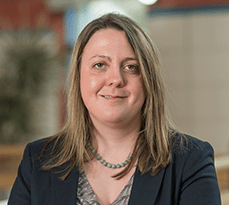There are a lot of things to consider in your application. Essay questions, submitting your GMAT score, organising a reference – it can seem like a lot to do, so here are a few tips to making your application go smoothly before you begin.
1. Check you fulfil all the Cambridge MBA criteria
Read the website thoroughly – it contains all you need to know about applying. It also means that you will come armed with information when you come to interview day, and that will help your confidence immensely. It will also help you to make the most of your time networking with other candidates and means you can ask the admissions team more interesting and vital questions. The MBA Apply pages are a great source of information.
2. Approach your reference early
Give your referee adequate time to think about and write a reference. When you apply for the Cambridge MBA, a request will automatically be sent to your referee once you have entered their contact details, so let them know in advance to expect a request.
For the Cambridge MBA, referees should be a current supervisor – or if that’s not possible, a former line manager or supervisor. If you are self-employed or run your own company, you can nominate a customer or supplier with whom you have a professional relationship. Either way, make sure they have enough time to write a considered reference which reflects you well.
3. Take your GMAT and make the scores available
It can take months to prepare and take the GMAT and GRE, and you might need to take it more than once to get the score that you desire. Most people spend their weekends and spare time to practise questions.
You will need to have passed the GMAT or GRE by the time you apply. You can self-report your score on the application form, but you will also need to authorise the centre to make your scores officially available to us. For the GMAT, many test centres will do this for free for up to five schools. Check what the process is with your test centre. We won’t be able to review your application until we are able to access your official score report, so leave enough time to make sure it’s available for us to check.
4. Acquire your degree transcripts and have them translated into English
You will need to submit a copy of your degree transcripts when you apply. It might take a while for you to get hold of these, so prepare these documents well in advance. Transcripts need to be written in English or must be certified translations. Copies of your transcript must be uploaded in the ‘Academic information’ section of our online application form. If you are successful at interview and made an offer, we will require you to verify your academics through Qualification Check, the ECCTIS approved education verification service. We are now a paperless office, in line with the sustainability policies of the Business School.
5. Check you are available for the interview dates for the round you are applying for
The dates for the interview periods, alongside the application round deadlines, are now available on the website, so you can check when you need to apply and when you will need to be free to take part in an online interview with a faculty member and to meet your future peers and possible classmates online, as part of the Cambridge MBA interview experience.
6. Show your answers to the essay questions to a friend or someone who knows you

It’s useful to have a second pair of eyes to look at your application, not just for spelling and grammatical errors, but also to see if you have presented yourself in the best light. It doesn’t have to be a work colleague, but someone who knows you well, and will give you some constructive feedback if you need it.
Annwen Gray, Head of MBA Admissions and Recruitment, “I always suggest you approach these questions like an interview. What happened, what you did, what the outcome was and how you apply that to now and your future approach. What was the lesson? Have you reflected on what you have learnt? And so on.”
7. Be aware of your finances and how you will fund yourself
If you are offered a place on Cambridge MBA, you will be required to demonstrate you can financially support yourself while you are undertaking the MBA. You will need to take into account your tuition fees and your living expenses (an additional £10,000 – £20,000 is a guide, depending on your lifestyle or whether you have family or dependents travelling with you).
Think about funding before you start your application. You will need to submit proof of your ability to pay in order to take up an offer. There are Cambridge MBA scholarships and bursaries available to candidates, but it is advisable to have a backup in case you do not receive financial aid from the University.
There are many loans and bursaries available, including country-specific funding. Look at the rounds that bursaries and scholarships are awarded in. This may give you an indication as to what round you should be applying for if funding is important to you. Information about our scholarships and bursaries are available on our website.


